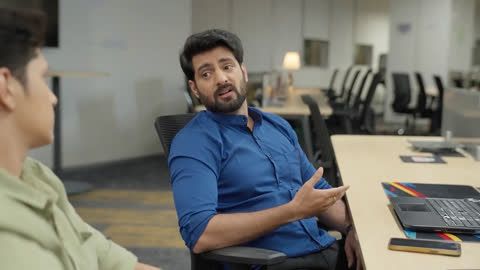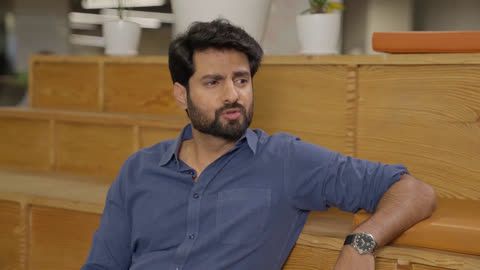Studying veterinary science is more than just a profession—it is a calling. Veterinary science helps not only in the treatment of animals but also plays a crucial role in public health. Here is why pursuing this field is a fantastic choice:
- Wide-ranging impact: A career in veterinary science contributes significantly to the overall health of ecosystems, communities, and societies by ensuring the health of animals
- High demand: With the rising need for animal care in India and globally, veterinarians are in high demand in hospitals, clinics, and research institutions
- Lucrative career: The field offers lucrative job opportunities, including roles in pet care, agriculture, and research
- Work satisfaction: Helping animals and improving their lives brings immense satisfaction and joy
Eligibility criteria of veterinary course
To enrol in a veterinary doctor course, certain eligibility criteria must be met. These include academic qualifications and entrance exams, which ensure the candidate has the right knowledge to succeed in this demanding field.
| Course name |
Eligibility criteria |
| B.V.Sc. |
12th standard with Biology, Chemistry, and Physics, minimum 50% marks |
| M.V.Sc. |
B.V.Sc. with at least 50% marks and relevant experience |
| Ph.D in Veterinary Science |
M.V.Sc. with strong academic performance and research interests |
In addition to these basic academic requirements, candidates must often clear entrance exams like NEET or university-specific tests.
Required skills for veterinary course
The skills required to excel in a veterinary doctor course go beyond academic qualifications. As a veterinary doctor, you will need a mix of technical and interpersonal skills to provide optimal care for animals.
- Attention to detail: Accurate diagnosis and treatments depend on a keen eye for detail
- Compassion and patience: Working with animals requires empathy, and patience is essential when dealing with nervous or sick animals
- Problem-solving: You must be able to identify issues and devise solutions quickly
- Good communication: Effective communication with pet owners is crucial in ensuring the correct treatment is followed
Developing these skills during your studies will help you excel in the veterinary doctor course and throughout your career.
Veterinary course syllabus
The syllabus of the veterinary doctor course is designed to provide students with in-depth knowledge of animal biology, diseases, surgery, and diagnostics. Below is a breakdown of the general syllabus for the B.V.Sc course:
| Year |
Subjects |
| 1 |
Anatomy, Physiology, Biochemistry |
| 2 |
Pathology, Microbiology, Pharmacology |
| 3 |
Surgery, Animal nutrition, Ethics |
| 4 |
Veterinary medicine, Reproduction |
| 5 |
Clinical practice, Surgery, Research |
As you progress, the syllabus will include more specialised topics, including aquatic animal diseases, livestock management, and veterinary surgery.
Veterinary courses
Apart from the veterinary doctor course, there are several advanced options for students looking to specialise further in veterinary science:
| Course name |
Specialisation areas |
Duration |
| M.V.Sc. |
Animal surgery, Veterinary medicine, Clinical pathology |
2 years |
| Ph.D. in Veterinary Science |
Research, Animal health, Genetics |
3-5 years |
| Veterinary Diploma |
Animal care, Poultry farming, Laboratory technology |
1-2 years |
These advanced courses allow students to deepen their knowledge and focus on areas such as animal nutrition, livestock diseases, and clinical management.
Fees of veterinary course
The cost of pursuing a veterinary doctor course in India can vary widely based on the institution, location, and type of course. However, students can expect to pay between Rs. 1 lakh to Rs. 5 lakh per year for a B.V.Sc. course in private colleges. Government colleges tend to offer lower fees, ranging between Rs. 50,000 to Rs. 1.5 lakh annually.
Here are some pointers for understanding the fees:
- Government institutions: Relatively affordable with fees as low as Rs. 50,000 to Rs. 1.5 lakh per year
- Private institutions: Fees can range from Rs. 1 lakh to Rs. 5 lakh per year
- Financial aid: Students may also consider opting for a Bajaj Finserv Doctor Loan to ease the financial burden. The loan can be used for course fees, hostel expenses, and other educational costs
Conclusion
The veterinary doctor course is an excellent career choice for those passionate about animals and interested in contributing to both public health and animal welfare. With the right skills, eligibility, and course selection, you can have a fulfilling and rewarding career. In areas like healthcare finance, understanding funding options can also be helpful as you plan your professional journey. For financial aid you can always consider a doctor loan or a professional loan. The Bajaj Finserv Doctor Loan offers affordable rates and convenient repayment terms. Whether you aim to work in a clinic, a research lab, or a farm, veterinary science is a field with immense potential.





